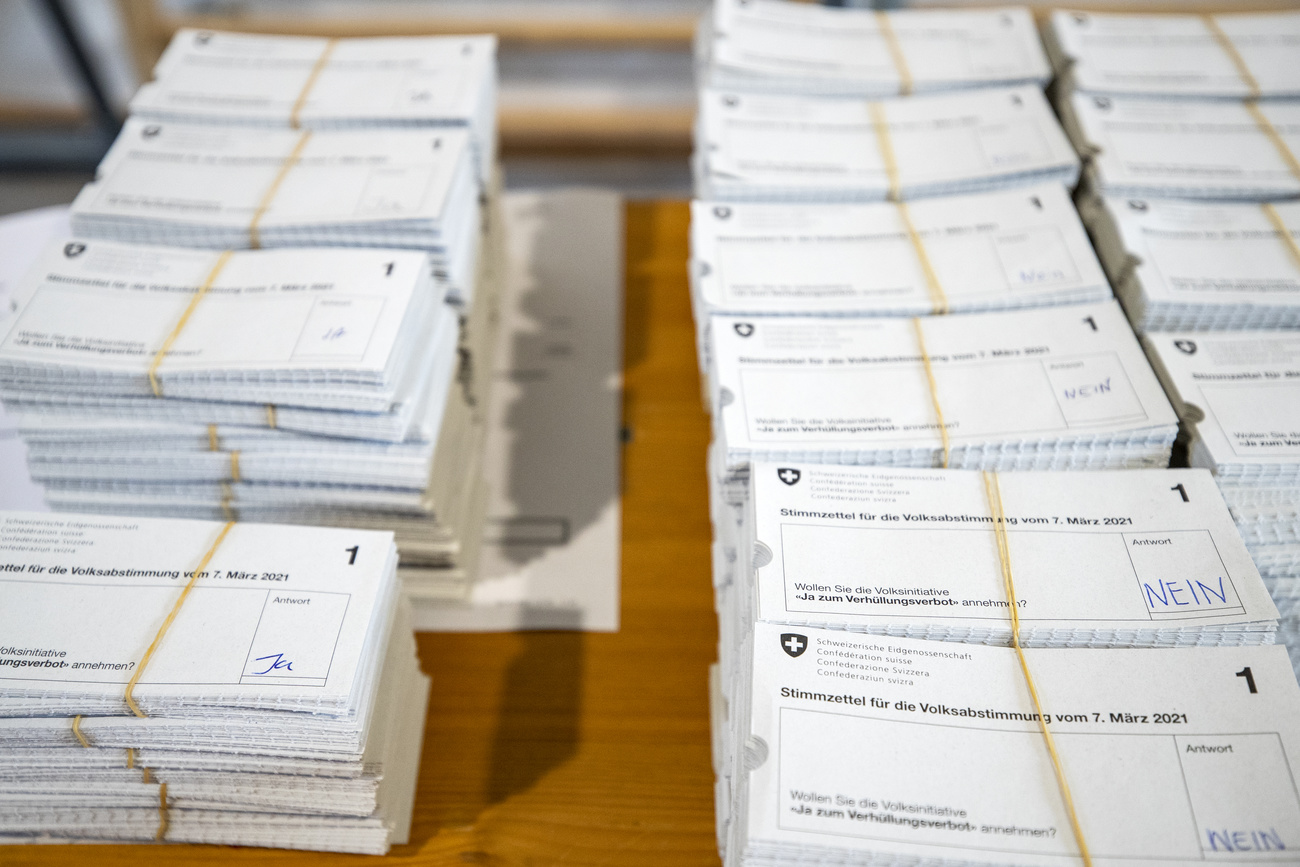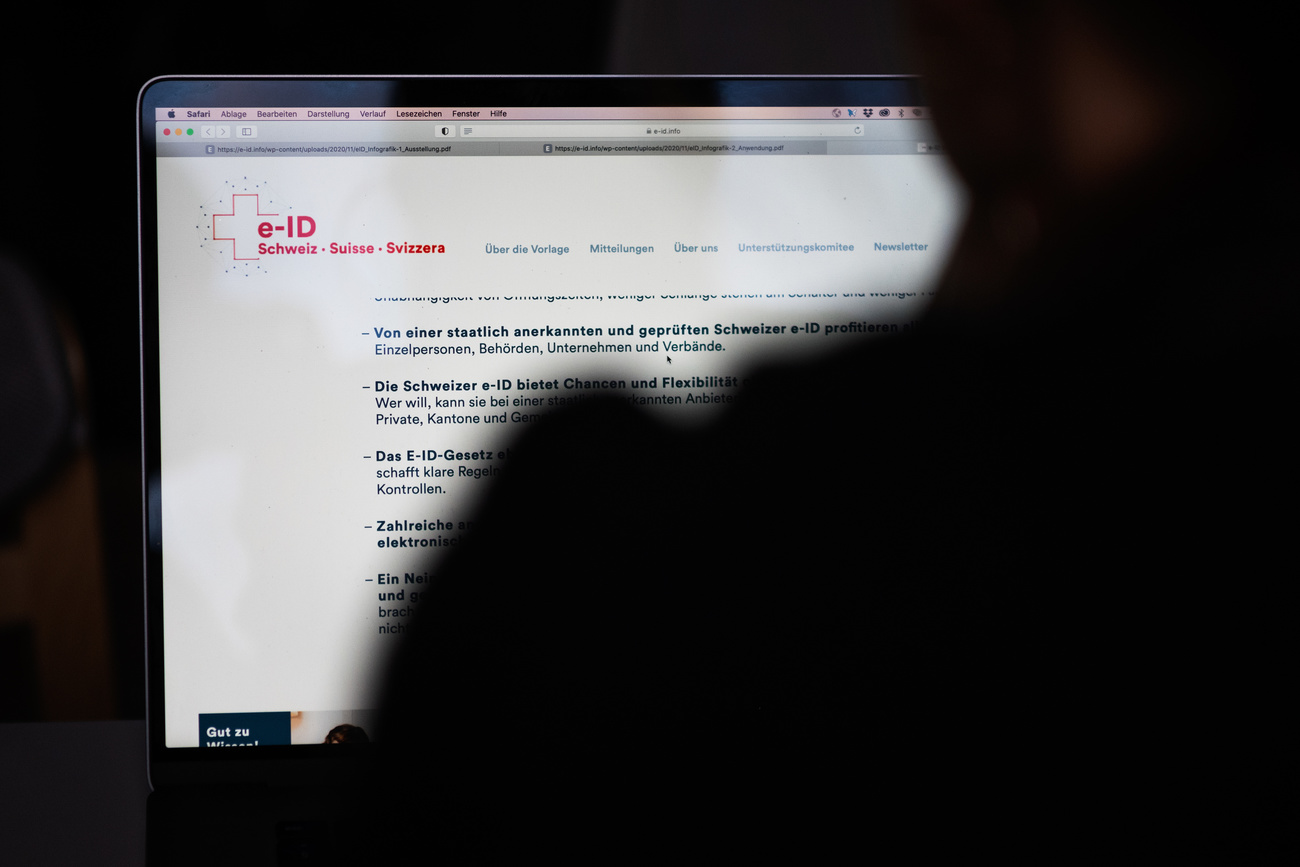Burka ban narrowly rejected by expat Swiss

Unlike their compatriots in Switzerland, the Swiss abroad rejected the "anti-burka" initiative and the free trade deal with Indonesia by a slim margin. The biggest difference in voting trend was on the electronic ID referendum, which the Swiss abroad wanted to see passed. Voter participation remained modest.
The people’s initiative banning face coverings, proposed by the conservative right Swiss People’s Party, was narrowly accepted in Switzerland on Sunday. The diaspora on the other hand rejected it by an equally slim majority (51.1%). This outcome differs so slightly from those voting within Switzerland that it is risky to draw conclusions.
The result came as a surprise as polling institute gfs.bern had forecasted that 58% of the expat vote would be in favour of the ban on face coverings despite decreasing support towards the end of the campaign.
It is difficult to explain why this “no” trend, which picked up steam at the start of the year, has manifested more among the diaspora than among the Swiss at home, according to Martina Mousson of gfs.bern institute, who notes that the voting behaviour of expats is still difficult to predict with certainty.
Free trade with Indonesia
The economic treaty with Indonesia also shows a turnaround compared to the polls. At the end of February there were slightly more supporters of the trade deal in the diaspora (54%) than in the rest of the population (52%).
It appears that a large proportion of the Swiss abroad who were still undecided opted in the end to vote “no”. The diaspora rejected the treaty by a hair’s breadth but were outweighed by a total vote in favour.
Electronic ID
While Switzerland clearly wasn’t ready for the electronic identity law (eID), which was rejected by more than 64% of voters and all the cantons, the diaspora was less dismissive. The Swiss abroad also rejected the referendum, but by a smaller margin.
In the 12 cantons that give detailed statistics of how former residents vote when they move abroad, almost 47% of expat voters were in favour of the eID. The comparatively higher acceptance of the proposal is certainly due to the fact that many Swiss citizens abroad would benefit from the introduction of a digital identity, particularly in the case of e-voting.
“Part of the electorate probably lives in countries where electronic identity already exists and could have had a favourable experience of such a tool,” says Mousson. “The Swiss abroad may also have a greater affinity with the online world because that’s how they stay in touch with their home countries.”
A modest contribution
In the same 12 cantons mentioned above, just under 35,700 votes were received out of 136,300 registered voters, a participation rate of 26.2%, which is lower than the average recorded over the last five years (just over 29%).
Conversely, participation in Switzerland rose above the 50% mark (51.3%), which has happened just four times since the beginning of 2016.
“Taking part in referenda requires a high level of motivation on the part of the Swiss abroad,” says Mousson. Voters are especially motivated to vote for issues that directly affect their lives, and this is even more true for the diaspora”.
The issue of the burka ban, for example, was more relevant to domestic policy, the political scientist added.

In compliance with the JTI standards
More: SWI swissinfo.ch certified by the Journalism Trust Initiative












You can find an overview of ongoing debates with our journalists here . Please join us!
If you want to start a conversation about a topic raised in this article or want to report factual errors, email us at english@swissinfo.ch.